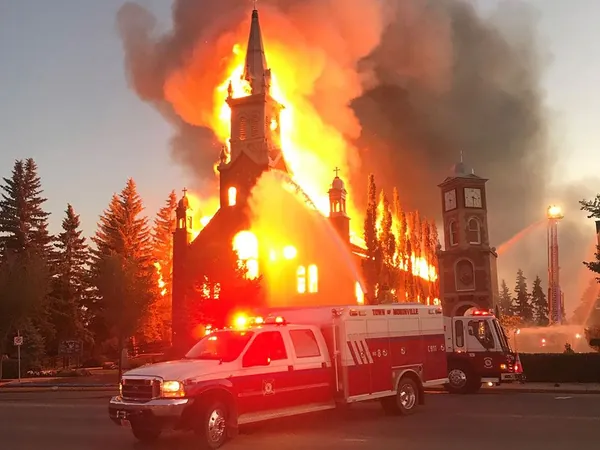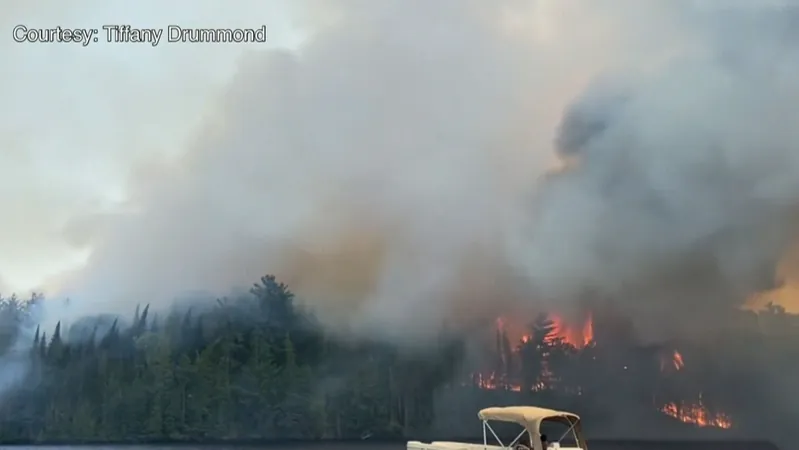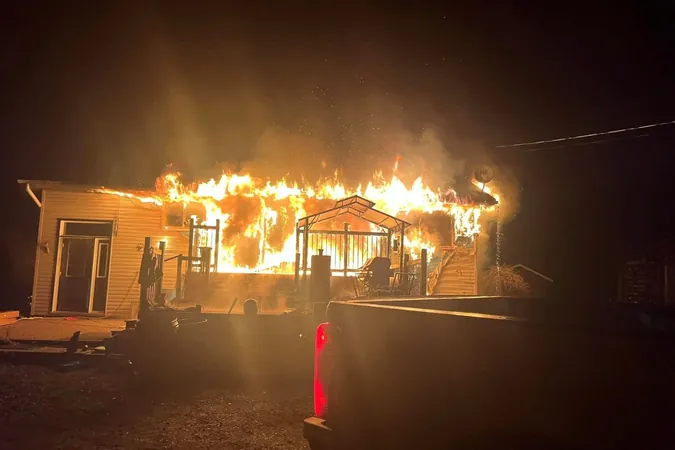
592 Places of Worship Torched in 12 Years—Is the Government Ignoring the Crisis?
2024-11-05
Author: Sophie
Introduction
For years, Canada has been embroiled in a shocking spate of arsons targeting places of worship, with incidents soaring sharply in recent times. Particularly alarming was the spike following reports of unverified graves linked to former residential schools, an issue that has ignited heated debates across the nation. Despite the rising number of arsons, Prime Minister Justin Trudeau’s handling of this crisis has drawn criticism for being more provocative than reassuring.
Statistics and Trends
Recent data revealed through Conservative MP Marc Dalton's inquiry highlights a staggering total of 592 police-reported arsons on places of worship, which include churches, synagogues, temples, and mosques, between 2010 and 2022. The estimated damage from these incidents has surpassed $10,000. This issue peaked in 2021, with reported arsons increasing from 58 in 2020 to 90. This escalation coincides with the announcement regarding the discovery of what were claimed to be "confirmed" remains of 215 children by the Tk’emlúps te Secwépemc First Nation.
Government Inaction and Responses
What is particularly troubling is the apparent silence from the Liberal government regarding these alarming statistics. Government responses to Dalton's inquiry were delayed, and the public was not made fully aware of the frequency and severity of these attacks. While there have been initiatives targeting issues related to pregnancy centers, the same energy has not been devoted to addressing the plight of places of worship under attack.
Legislative Measures
As of early 2024, a mere 12 individuals have been charged in connection with the church arsons, and only one conviction has occurred, showcasing a lack of concrete governmental action. In light of this, Dalton has introduced a legislative measure, Bill C-411, known as the "Anti-Arson Act," which aims to establish more stringent penalties for damaging places of worship, including a minimum of five years of imprisonment for first-time offenders.
Public Discourse and Community Concerns
Adding fuel to the fire, the public discourse surrounding the controversial discoveries of unmarked graves in Canada remains charged. Critics argue that simply questioning these findings subjects one to potential backlash and accusations of denialism. There’s a growing sentiment that the government may prefer to maintain the narrative without addressing the questions swirling around the veracity of these claims, which deeply affect the community's healing process.
Conclusion
In a time when violent attacks on places of worship are rising, Canada desperately needs leadership that prioritizes safeguarding all religious spaces and fosters transparent dialogue about the past, without stifling dissenting voices. As the nation grapples with its complex history and the attacks on its spiritual sites, one cannot help but wonder: why is the government turning a blind eye to this crisis? The need for accountability and action has never been more pressing.









 Brasil (PT)
Brasil (PT)
 Canada (EN)
Canada (EN)
 Chile (ES)
Chile (ES)
 España (ES)
España (ES)
 France (FR)
France (FR)
 Hong Kong (EN)
Hong Kong (EN)
 Italia (IT)
Italia (IT)
 日本 (JA)
日本 (JA)
 Magyarország (HU)
Magyarország (HU)
 Norge (NO)
Norge (NO)
 Polska (PL)
Polska (PL)
 Schweiz (DE)
Schweiz (DE)
 Singapore (EN)
Singapore (EN)
 Sverige (SV)
Sverige (SV)
 Suomi (FI)
Suomi (FI)
 Türkiye (TR)
Türkiye (TR)